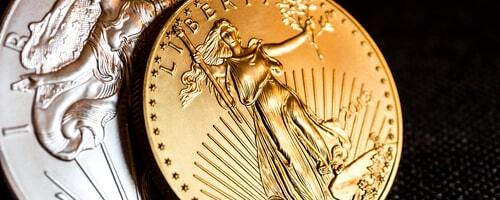
Jackson Hole Wyoming, the economic event of this summer
Since 1978 the Federal Reserve of Kansas City has been sponsoring an annual economic symposium. Central bankers and finance ministers from around the world attend the symposium to focus upon critical economic issues. Former Federal Reserve Chairman Ben Bernanke moved the venue to Jackson Hole Wyoming in 1981.
According to Investopedia, “The Jackson Hole Economic Symposium is one of the longest-standing central banking conferences in the world. The mission of the event is to foster an open discussion. Attendees are selected based on each year’s topic, with additional consideration given to create regional diversity among attendees.”
At each symposium it is the role of the Federal Reserve Bank of Kansas to select a specific topic that the symposium will focus upon. Although the number of individuals attending is only about 120 people, these individuals represent the key global economic policymakers. These policymakers will use this topic as the focal point for their research and submit their findings online.
The 44th Annual Economic Policy Symposium will be held from August 27 to August 28, although on this occasion the symposium will be held virtually due to concerns of the global pandemic.
One of the most startling aspects in terms of this year’s primary topic is in the comparison to the primary focus of the 2019 event. Last year economies worldwide experienced one of the largest economic expansions in history, and the topic of discussion during the symposium was “Challenges for Monetary Policy”.
In his opening remarks Chairman Jerome Powell addressed the current challenges for monetary policy saying, “For the Federal Reserve those challenges flow from our mandate to foster maximum employment and price stability. From this perspective, our economy is now in a favorable place … The current U.S. expansion has entered its 11th year and is now the longest on record. The unemployment rate has fallen steadily throughout the expansion and has been near half-century lows since early 2018.”
This year’s topic is “Navigating the Decade Ahead: implications for Monetary Policy”. The severity and long-term implications of the pandemic which began this year are underscored in this year’s topic which is a discussion of the decade ahead, rather than the year ahead.
The global pandemic is the core crisis that all governments are facing. According to the Japan Times, “The Federal Reserve and other monetary authorities have gone to unprecedented lengths to combat the COVID-19 crisis, flooding the global economy with trillions of dollars in liquidity and credit, and in the process have become a towering presence in the financial markets … the pandemic has also exposed an unpleasant reality for the monetary mavens: After decades in which they rode high as overseers of the global economy, they no longer have the firepower to manage the business cycle on their own. They need the help of fiscal policymakers to do that — a fact made painfully clear by the U.S. congressional stalemate over another stimulus package and the threat that poses to the nascent economic recovery.”
The truth is that monetary policy by central banks worldwide have used the majority of their tools to attempt to stabilize their core economies. However, without further fiscal stimulus by the Federal Reserve and other central banks a global economic recovery to that of the pre-pandemic era seems virtually impossible.
While central banks worldwide will continue to play a critical role in the economic recovery, alone they stand very little chance of meeting their objectives.
By Gary Wagner
Contributing to kitco.com
David